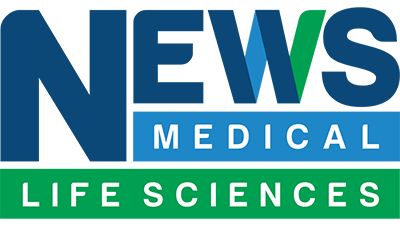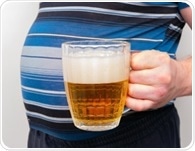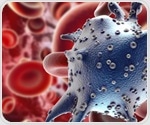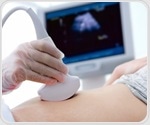
|
|
|
| |

|
|
| |
The latest women's health news from News Medical |
|
|
|
 | | |  Higher tyrosine levels linked to shorter lifespan in major UK Biobank analysis Higher tyrosine levels linked to shorter lifespan in major UK Biobank analysis Researchers analyzed over 272,000 UK Biobank participants and used Mendelian randomization to investigate whether circulating phenylalanine and tyrosine influence lifespan. Genetically predicted higher tyrosine levels were linked to shorter lifespan, particularly in men, while phenylalanine showed no independent effect after adjustment. | | | | |  Researchers reveal why SuperAgers retain youthful brain cell signatures into their 80s Researchers reveal why SuperAgers retain youthful brain cell signatures into their 80s Researchers used single-nucleus RNA sequencing and chromatin accessibility profiling to map human hippocampal neurogenesis across adulthood, aging, and Alzheimer’s disease. They found that chromatin accessibility changes, more than gene expression alone, distinguish healthy aging, preclinical pathology, Alzheimer’s disease, and cognitive resilience in SuperAgers. | |
|
|
|  | | | | |  Living near nuclear power plants is associated with higher cancer mortality, national US study reports Living near nuclear power plants is associated with higher cancer mortality, national US study reports A nationwide ecological study of US counties from 2000 to 2018 found that greater proximity to operational nuclear power plants was associated with higher cancer mortality rates, particularly among adults aged 65–74 years. The analysis used inverse-distance weighting within 200 km and adjusted for demographic, socioeconomic, environmental, and healthcare factors, but did not measure individual radiation exposure. | |  | | | | |  Heavy alcohol intake is associated with dangerous belly fat accumulation, large UK study shows Heavy alcohol intake is associated with dangerous belly fat accumulation, large UK study shows In a large UK population cohort, higher weekly alcohol consumption was dose-dependently associated with greater visceral fat mass measured by DXA, independent of total body fat. Heavy drinkers showed over 10% higher proportional visceral fat compared with lower consumption groups, a pattern linked to increased cardiometabolic risk. | |  | | | | |  Can brain training prevent dementia? Long-term trial shows speed training with boosters makes a difference Can brain training prevent dementia? Long-term trial shows speed training with boosters makes a difference A 20-year follow-up of older adults in the ACTIVE randomized trial linked to Medicare claims found that speed of processing cognitive training with booster sessions was associated with a significantly lower risk of diagnosed Alzheimer’s disease and related dementias. Memory and reasoning training did not show comparable long-term reductions in dementia risk. | |
|
|
|  | | |  Researchers analyzed a state-representative US sample to examine whether negative social ties, termed “hasslers,” are associated with epigenetic age acceleration and faster biological aging. Each additional hassler was linked to roughly nine months higher biological age and a 1.5% faster pace of aging, with particularly strong associations for mental health outcomes. Researchers analyzed a state-representative US sample to examine whether negative social ties, termed “hasslers,” are associated with epigenetic age acceleration and faster biological aging. Each additional hassler was linked to roughly nine months higher biological age and a 1.5% faster pace of aging, with particularly strong associations for mental health outcomes. | | | | |  Elite European women’s football players and staff show substantial knowledge gaps about menstrual health and hormonal contraception despite widespread openness to discussion. The study highlights the need for structured education to support informed health decisions while clarifying that perceived performance effects are not consistently supported by scientific evidence. Elite European women’s football players and staff show substantial knowledge gaps about menstrual health and hormonal contraception despite widespread openness to discussion. The study highlights the need for structured education to support informed health decisions while clarifying that perceived performance effects are not consistently supported by scientific evidence. | | | | |  An exome-wide association study of nearly 38,000 smokers from the Mexico City Prospective Study identified rare coding variants in CHRNB3 that are associated with substantially fewer cigarettes smoked per day. Cross-ancestry analyses in European and East Asian datasets support a role for the β3 nicotinic receptor subunit in modulating smoking intensity. An exome-wide association study of nearly 38,000 smokers from the Mexico City Prospective Study identified rare coding variants in CHRNB3 that are associated with substantially fewer cigarettes smoked per day. Cross-ancestry analyses in European and East Asian datasets support a role for the β3 nicotinic receptor subunit in modulating smoking intensity. | | | | |  The parallels between ultraprocessed foods and tobacco raise concerns about addiction and health risks, urging policymakers to implement effective regulations. The parallels between ultraprocessed foods and tobacco raise concerns about addiction and health risks, urging policymakers to implement effective regulations. | | | | | A new study found that heart attack deaths were up among younger adults with women more likely than men to die after a first heart attack. | | | | |  Research shows higher fiber consumption may lower coronary heart disease risk in night shift workers, suggesting dietary adjustments for better health. Research shows higher fiber consumption may lower coronary heart disease risk in night shift workers, suggesting dietary adjustments for better health. | | | | |  For many women with breast cancer, the very treatment that saves their lives can also bring fatigue, loss of muscle mass, emotional strain and other daunting obstacles. For many women with breast cancer, the very treatment that saves their lives can also bring fatigue, loss of muscle mass, emotional strain and other daunting obstacles. | | | | | Driven by rising rates in high blood pressure, nearly 6 in 10 women in the U.S. will have some type of cardiovascular disease (CVD) in the next 25 years, according to a new scientific statement published today in Circulation, the peer-reviewed, flagship journal of the American Heart Association, a global force changing the future of health for all. | | | | | CAR T cell therapy has revolutionized the treatment of many blood cancers, but has shown little success against solid tumors, which account for over 85% of all cancers. | | | | |  A recent commentary argues that US measles and pertussis outbreaks are not simply the result of vaccine hesitancy but reflect weakened immunization policies, permissive exemptions, and underfunded public health systems. The authors contend that policy environments determine whether pockets of low coverage escalate into large-scale, preventable outbreaks. A recent commentary argues that US measles and pertussis outbreaks are not simply the result of vaccine hesitancy but reflect weakened immunization policies, permissive exemptions, and underfunded public health systems. The authors contend that policy environments determine whether pockets of low coverage escalate into large-scale, preventable outbreaks. | | | | |  Human papillomavirus (HPV) vaccination is associated with a significantly reduced risk of invasive cervical cancer, with no indication of waning protection up to 18 years after vaccination, finds a study from Sweden published by The BMJ today. Human papillomavirus (HPV) vaccination is associated with a significantly reduced risk of invasive cervical cancer, with no indication of waning protection up to 18 years after vaccination, finds a study from Sweden published by The BMJ today. | | | | |  Despite recent advancements in breast cancer treatments, new breast cancer cases in women are predicted to rise by a third globally from 2.3 million in 2023 to more than 3.5 million in 2050. Despite recent advancements in breast cancer treatments, new breast cancer cases in women are predicted to rise by a third globally from 2.3 million in 2023 to more than 3.5 million in 2050. | | | | |  Ultrasound AI, a pioneer in artificial intelligence applications for medical imaging, today announced it has received FDA De Novo clearance for its flagship Delivery Date AI technology, a cloud-based SaMD that determines a Predicted Delivery Date (PDD) solely from standard ultrasound images and seamless integration into current OB/MFM prenatal visit workflows; PDD is provided in real-time for actionable decision-making by the clinical team. Ultrasound AI, a pioneer in artificial intelligence applications for medical imaging, today announced it has received FDA De Novo clearance for its flagship Delivery Date AI technology, a cloud-based SaMD that determines a Predicted Delivery Date (PDD) solely from standard ultrasound images and seamless integration into current OB/MFM prenatal visit workflows; PDD is provided in real-time for actionable decision-making by the clinical team. | | | | |  The World Health Organization (WHO) has certified Denmark for the elimination of mother-to-child transmission (EMTCT) of HIV and syphilis, recognizing the country's sustained commitment to ensuring every child is born free of these infections. The World Health Organization (WHO) has certified Denmark for the elimination of mother-to-child transmission (EMTCT) of HIV and syphilis, recognizing the country's sustained commitment to ensuring every child is born free of these infections. | | | | |  This study reveals links between socioeconomic deprivation and gut microbiome changes, highlighting potential pathways to mental and metabolic health issues. This study reveals links between socioeconomic deprivation and gut microbiome changes, highlighting potential pathways to mental and metabolic health issues. | |
|
|
|
|
|
|
|